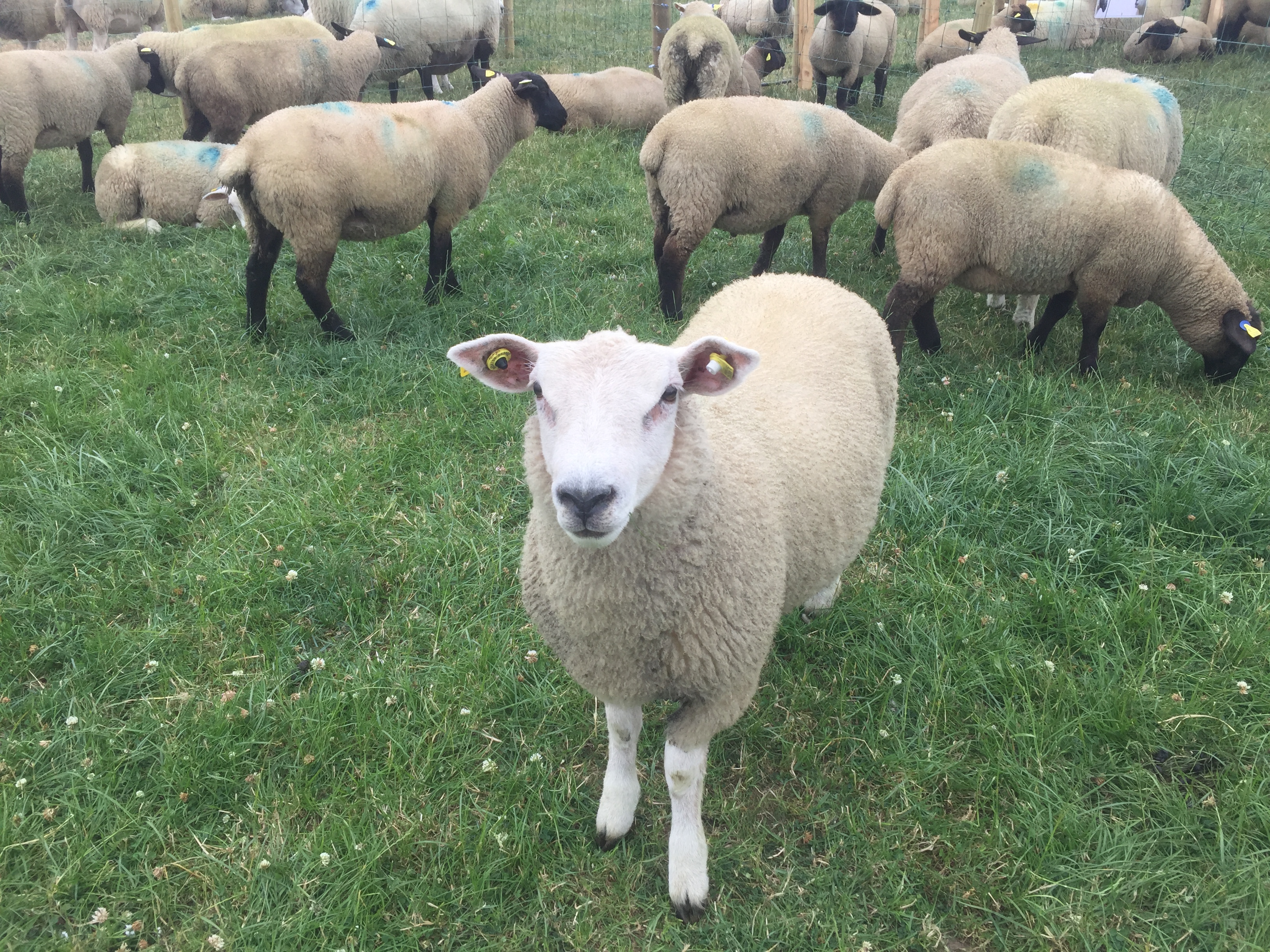The EID (electronic identification) tagging debate has been rumbling on for weeks now, with the Department of Agriculture and farmers still at loggerheads over the topic.
Farmers – for the most part – are strongly opposed to the introduction of a measure that could potentially add €1.30-1.40 to the cost of marketing a lamb.
At last Saturday’s SHEEP 2018 event in Athenry, farmers continued to air their grievances toward the introduction of compulsory EID tagging for all sheep sold from October 1, 2018.
As part of the event, a Brexit and industry discussion was held; the panel for which included Bord Bia’s Declan Fennell and Irish Country Meats’ John Walsh. One farmer had a very simple, but yet topical, question for the panel, he said: “Will EID give us a higher price for our lambs. If not, why should the farmers face a higher cost?”
Answering this question fell to both Fennell and Walsh and neither could provide concrete evidence to suggest that the introduction of compulsory EID tagging will in fact return higher prices to farmers.
In terms of EID and the opportunity it provides, Fennell said: “I think EID is creating a lot of discussion and debate.
“But as an opportunity to improve our systems of traceability – to make us competitive with some of our competitors in that space – it can only be a positive thing.”
The Bord Bia representative noted that customers and consumers are “demanding more” when it comes to traceability and “they want reassurance”.
To have the principle of EID behind us can only be a positive. Our job is about future proofing the industry and the single most important thing we have as an industry is reputation.
“Anything that safeguards and galvanises our reputation and system of control can only be a positive thing and we need to have the mature debate and build that reputation.”
Fennell also stressed the importance of EID when it comes to establishing new and protecting existing markets.
“EID has become an industry standard and our competitors are doing it. By not having it, what are the implications?
“In some ways, we are leaving our rear guard open in the sense that our system of control could be better. Number two is that when we are going into new markets like the US and we don’t have EID; I’m not saying that EID is the main deal breaker – but it’s significant.
“With EID, I am confident and I believe that it will give us a better ability in existing markets to provide the evidence that we have the systems of control.”
A factory’s perspective
John Walsh, general manager at Irish Country Meats, also aired his views in regards to the introduction of compulsory EID tagging.
“There’s maybe a misconception that there’s going to be a great saving to the processor by virtue of the fact that we don’t have to read an ear tag as the lamb comes up the line; but that’s one man, one job.
We are audited to death in all of our plants now and the very first thing that’s on 100% of the audit schedules is the traceability exercise.
“The customer will come in and say: ‘The product I got on March 14, I want to know the first, middle and last farmer in the batch and I want full traceability on it.’
“You can do that because you develop a system over time that allows you to do that. With electronic tagging, you are home and hosed effectively.
“I accept that there are challenges in terms of cost and that all needs to be hammered out over the coming months.” he noted.
The processor with bases in Camolin and Navan is currently operating in 30 markets and Walsh sees EID tagging as key to protecting these while also enhancing further marketing opportunities.
We’re competing with Welsh, English and Northern Irish lamb with EID traceability and we are a little bit out on our own in that regard and that’s a challenge we have to face down.
“Electronic tagging certainly helps to face that down, but there’s definitely a return in it for the industry as a whole.”
When it comes to the prices returned to the farmer, Walsh noted: “The ambition of processors is to give the farmer back the best price that possibly can be given to them to ensure a sustainable supply.
“Irish Country Meats is a sheep processor. We have nothing else to fall back on. If sheep are costing too much or can’t be sold, we’ve no fall-back.
“Our interest is to have a 52-week supply at a sustainable price. 2018 has delivered significant improvements back to livestock farmers. Will EID help that? I don’t know, but I hope it will.”
‘Farmers are not prepared to carry additional costs of EID’
Prior to the SHEEP 2018 event, the Irish Farmers’ Association’s Joe Healy said that farmers are not prepared to carry the costs of EID. The decision of Minister Creed, he said, to impose EID from October 1, 2018, will cost sheep farmers €2 million per year.
Farmers are very annoyed at the decision, he noted, that comes on top of a very difficult year, where feed costs soared, losses were high and now we have a major drought situation.
The IFA has met with Minster Creed and put detailed proposals to the Department of Agriculture for a €1/tag subvention on the costs of EID, as the benefits of EID predominately go to the department, the factories and the marts.
The organisation has also proposed that it should not be necessary to extend EID to sheep that go from the farm of origin direct to slaughter, as it adds nothing to traceability.


